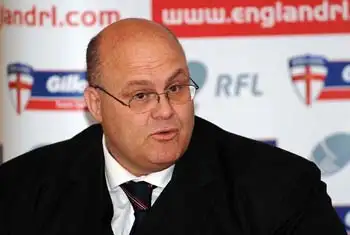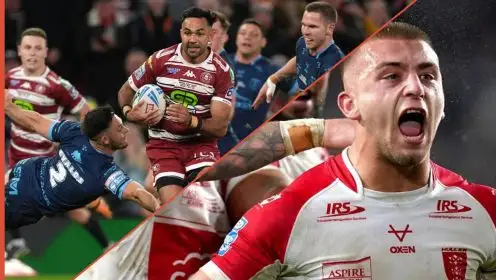No knock on Wood for Nigel

Much was made of RFL chief executive Nigel Wood’s recent comments about comparing the top level of Super League with the NRL.
For the record, he said: “Our best clubs are absolutely the equal of the NRL clubs in every capacity – on field and off it. We might not have the same depth in terms of excellence as the NRL but we should definitely believe St Helens, Wigan and Leeds are as good on and off the field as those they’ll be playing.”
From some of the frenzied reaction from rugby league fans, you might have thought he’s said that Super League was guaranteed a 3-0 win the World Club Series, and that our league was far superior to that of the Australians in every way.
Which wasn’t what he said at all.
In fact, he said that a small number of our clubs are as good as NRL clubs. Not all of our clubs by any means.
He over-egged the pudding slightly, agreed, but he was a long way from saying that Super League equals the NRL.
Such a comparison between the competitions in unfair anyway. The Australian clubs have all kinds of in-built advantages which are not necessarily appreciated by those in the NRL bubble.
The difference in financial resource is huge, for a start. In terms of finance, Super League clubs are dwarfed by their Australian counterparts.
The NRL salary cap is around £3.6 million, while Super League’s is £1.85 million. That is almost double.
This has a knock-on effect with everything, from youth recruitment and development, professionalism, sponsorship to marketing and media coverage.
There is currently no way that Super League clubs can compete on a level field financially, without broadcasters coming up with some unprecedentedly large deal.
There is also the culture of New South Wales and Queensland to contend with. They are both states where rugby league is king and has been for decades.
Their populations continue to grow, and the Australian economy is continuing to generate growth and wealth. The influx of New Zealanders and Pacific Islanders into Sydney and south-east Queensland, who grow up with rugby in their homelands, continues at a great pace.
The sport is also growing in Victoria and Western Australia and the junior base in the main two states is strong, much bigger than in England, and is supported by a dominant touch football code.
By contrast, rugby league in the UK is popular in the post-industrial North of England, primarily in towns, not cities.
These places have suffered some terrible economic ravages over the last 40 years, and populations in many traditional strongholds of the game have declined along with the industries that used to thrive.
The North continues to suffer economically in comparison to the South of England, despite the platitudes of politicians who tell us that the UK economy is now in recovery.
The NRL has also yet not started to be properly hit with competition from the round ball code, the world game of association football, in the same way Super League contends with the juggernaut of the Premier League.
Nor does the NRL have to contend with a massive media bias towards rugby union, due largely to the fact that many UK journalists now do not come from class, educational or geographical backgrounds which are sympathetic to league.
The dice is loaded against rugby league in the UK, yet our game still produces great players and great teams. Look at Leeds in 2015.
So Wood was perhaps a little misplaced in his comments, but the spirit behind them is admirable.
We should be defiant about our game in this country, and the hardships it continues to face.
That we are still here, and producing some teams who can challenge the best in the NRL is something that we should be proud of, as use as fuel to improve even further both in the club and international arenas.



